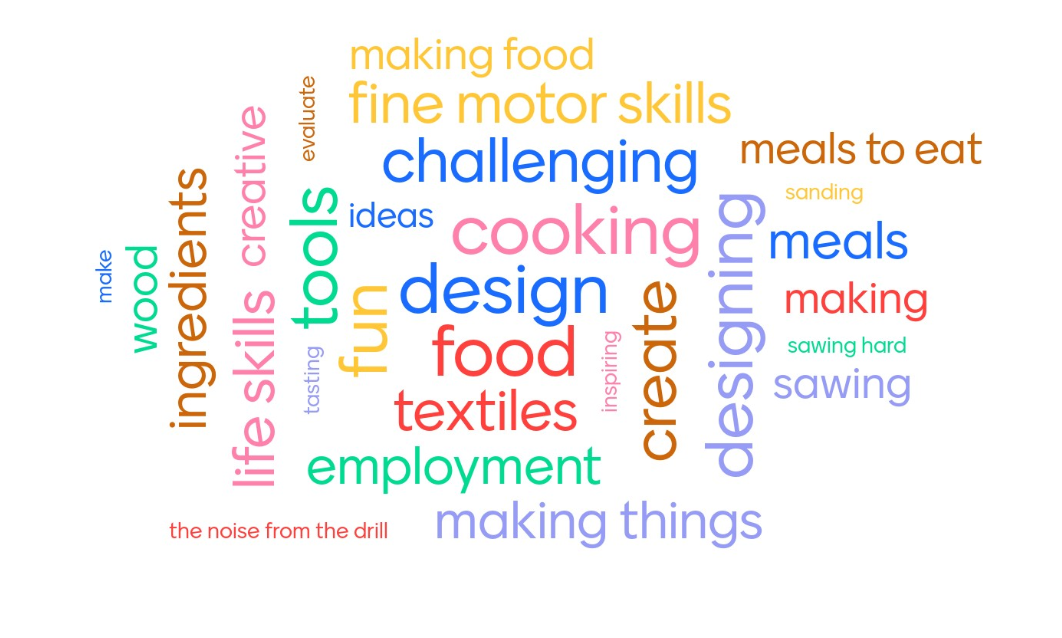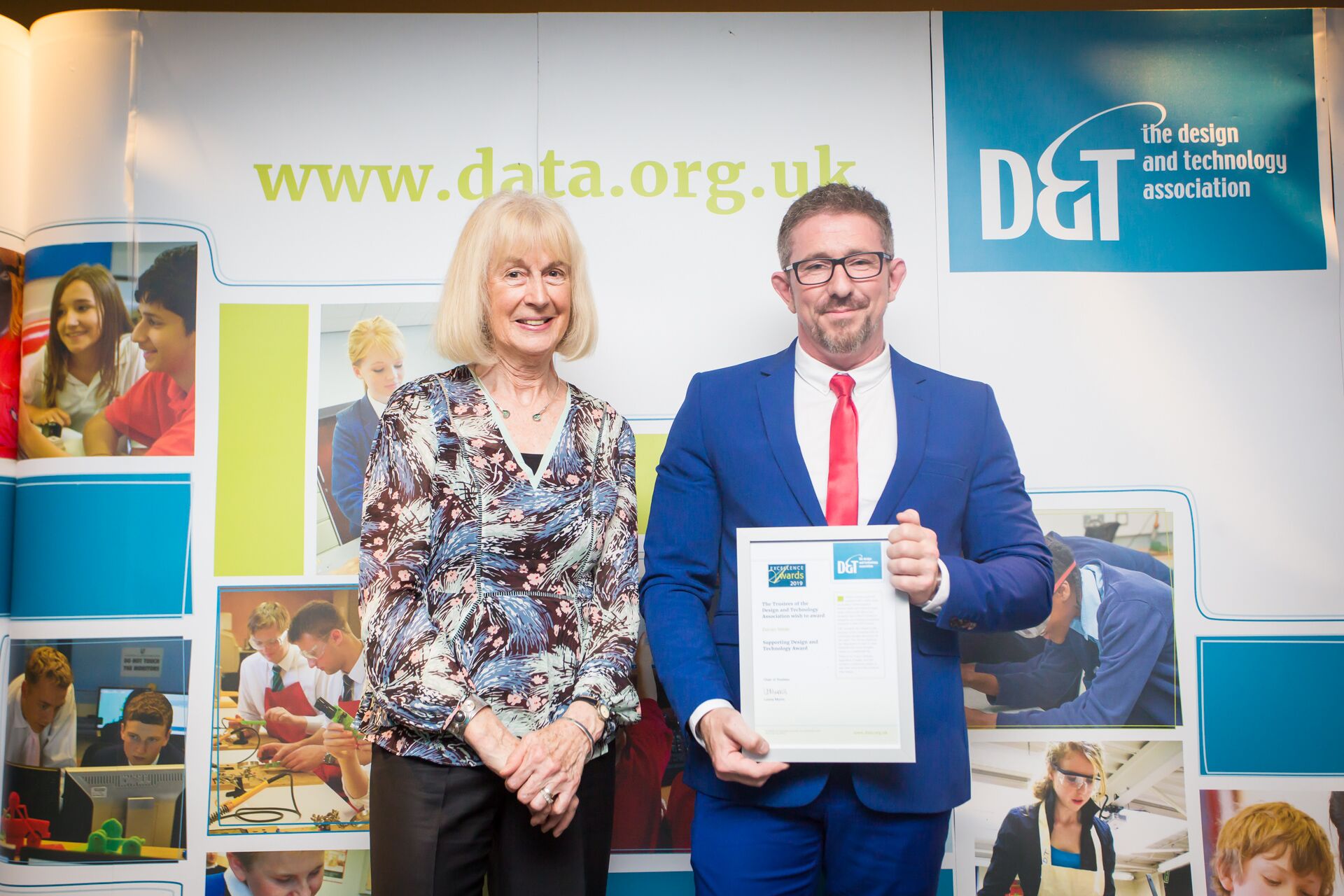Latest News:
INTENT
At Pendle Community High School, Design & Technology is an inspiring and practical subject. Pupils use their creativity and imagination to design and make products within a variety of contexts. Pupils begin to acquire a knowledge of how to design, make and evaluate prototypes and products for a wide range of users.
The Design & Technology curriculum draws on and links with other subjects such as mathematics, science, computing and art. Pupils are encouraged to trial new techniques, work with different materials and evaluate their success. Through consideration of past and present Design and Technology, pupils also begin to develop an understanding of its relevance and impact on their daily lives and the wider world. The Design & Technology curriculum is broad and balanced with cross curricular links, sets high expectations and is designed to provide appropriate challenge to all pupils and ensures they contribute to wider school life and local communities and charities.
Design & Technology aims to ensure that all pupils get opportunities to gain knowledge and skills to begin to develop the creative, technical and practical expertise needed to perform everyday tasks confidently and to participate successfully in an increasingly technological world.
To build and begin to apply a repertoire of knowledge, understanding and skills in order to design and make prototypes and products for a wide range of users.
To begin to critique, evaluate and test their ideas and products and the work of others.
To begin to understand and apply the principles of nutrition and learn how to cook.
IMPLEMENTATION
Design & Technology at Pendle Community High School is based on different units throughout the year but planned so that pupils can achieve depth and progression in their learning. Design & Technology is sequenced to enable pupils to use and build on prior learning and knowledge, and to continually develop key skills. Existing knowledge is checked prior to the commencement of each unit ensuring that teaching is planned accordingly from the pupils’ starting points identified through the assessment system. The units take into consideration what the pupils need to know, and which units engage pupils’ interests. Units are sequenced to provide maximum progression of skills whilst maintaining the focus of design, make and evaluate.
Independent learners are encouraged to be inquisitive, ask questions and work independently, where possible as part of the design process. The curriculum is designed to provide challenge and all activities will be appropriately matched for individual learning, as well as encouraging problem solving.
Supported and experiential learners follow a thematic approach, where many areas of the curriculum are connected and integrated within a theme. These classes work in smaller groups whose learning is met primarily through experiences and activities which are multi-sensory and stimulate learning through kinaesthetic approaches and are supported through structure and routines. This curriculum is used to enhance early learning and development in pupils across school who present with sensory issues and those who learn best via a highly experiential, multi-sensory approach.
Design & Technology is well resourced and specific resources are mapped to specific groups and units to support effective teaching and learning. In lessons, we use a range of resources and materials to support practical opportunities. The specialist corridor has a dedicated Design & Technology wall, displaying simple facts about the subject including resistant materials, equipment, the Eatwell Plate and the seasonal cycle. Some groups make bespoke resources requested by subject leaders to facilitate learning in the classroom and other large-scale material products are utilised in the sensory garden e.g. planters, benches. Several herbs and vegetables are grown on site for use in cooking and nutrition lessons which ensures the school environment further supports learners in recognising the impact and importance of the subject.
Pupils will be taught
Design
· With support, to research and design purposeful, functional, appealing products for themselves and other users based on simple design criteria.
· To generate, develop, model and communicate their ideas through discussion, drawings and sketches, templates, mock-ups and prototypes, and where appropriate, ICT.
Make
· To select from and use a range of tools and equipment to perform practical tasks [for example, cutting, shaping, joining and finishing] accurately and independently or with support
· to select from and use a wide range of materials and components, including construction materials, textiles and ingredients, according to their properties and characteristics.
Evaluate
· To explore and evaluate a range of existing products.
· To evaluate their ideas and products against design criteria and consider the views of others to improve their work.
· To investigate new and emerging technologies with support.
· To begin to understand how some key events and individuals in design and technology have helped shape the world.
Technical knowledge
· To build structures, exploring how they can be made stronger, stiffer and more stable.
Explore and begin to understand and use mechanical systems in their products [for example, sliders, wheels and axles, gears, pulleys, levers and linkages]
·To begin to understand and use electrical systems in their products [for example, series circuits incorporating switches, bulbs, buzzers and motors]
To begin to apply their understanding of computing to program, monitor and control their products
Cooking and nutrition
As part of their work with food, pupils will be taught how to cook and apply the principles of nutrition and healthy eating. For pupils at PCHS&C learning how to cook is a crucial life skill, promoting independence and aiming to enable pupils to feed themselves and others affordably and well, now and in later life.
Pupils will be taught to:
· Use the basic principles of a healthy and varied diet to prepare dishes.
Understand where food comes from.
Prepare and cook a variety of dishes using a range of cooking techniques, with support
Begin to understand seasonality and know where and how a variety of ingredients are grown, reared, caught and processed.
Become competent in a range of cooking techniques [for example, selecting and preparing ingredients; using utensils and electrical equipment; applying heat in different ways; using awareness of taste, texture and smell to decide how to season dishes and combine ingredients; adapting and using their own recipes]
In KS4, all pupils continue to study Cooking and Nutrition to support the development of essential life skills and is accredited through AQA Entry level units and, where possible, pupils prepare to embark on NCFE Level 1 and 2 catering in KS5. Pupils continue to have access to working with resistant materials in the Workshop with a more defined focus on work related learning and personal development.
IMPACT
As a pupil progresses through the school, they develop an understanding of how to design, make and evaluate own products as well as giving feedback to others. Skills and knowledge taught in Design & Technology are transferable and support pupils to do more and engage more in other curriculum areas. Teachers have high expectations and evidence of this is demonstrated in progress data and KS4 accreditation results. Impact is also recognised in pupils’ contributions, questions and enthusiasm in lessons, participation in themed days, buffets and craft carousels where pupils demonstrate and describe their creations.
Pupils further develop their abilities in the 4 key drivers of the curriculum as well as improving numeracy and technical skills. Some pupils will become more confident in analysing their own work and making suggestions for improvement. The depth of knowledge that pupils will attain will vary but all will demonstrate progress from their individual starting points.
Pupils will have also learnt about careers and related work opportunities that are accessible for them in the local and wider community. This is enhanced by visitors to school and educational visit opportunities for further relevant and contextual learning.
Design and Technology Lead
Carl Byrne supported by
Darren Wilde & Shenice Lee
cbyrne@pchs.lancs.sch.uk
Also See:
Resistant Materials
Textiles and Mechanisms
Pupil Voice: Why we think it is important to learn about DESIGN AND TECHNOLOGY in school.

CONTACT US
Pendle Community High School & College
Pendle Vale Campus, Oxford Road, Nelson, Lancashire, BB9 8LF
Tel: 01282 682260
Headteacher: Debra Grogan
Chair of Governors: Trevor Ashton (Address c/o above)
Receptionist: Sophie McCamon
E-mail: smccamon@pchs.lancs.sch.uk
SENDCO: Stephanie Curtis
Email: scurtis@pchs.lancs.sch.uk
CONNECT WITH US
Paper copies of the information on our website can be requested via email.


